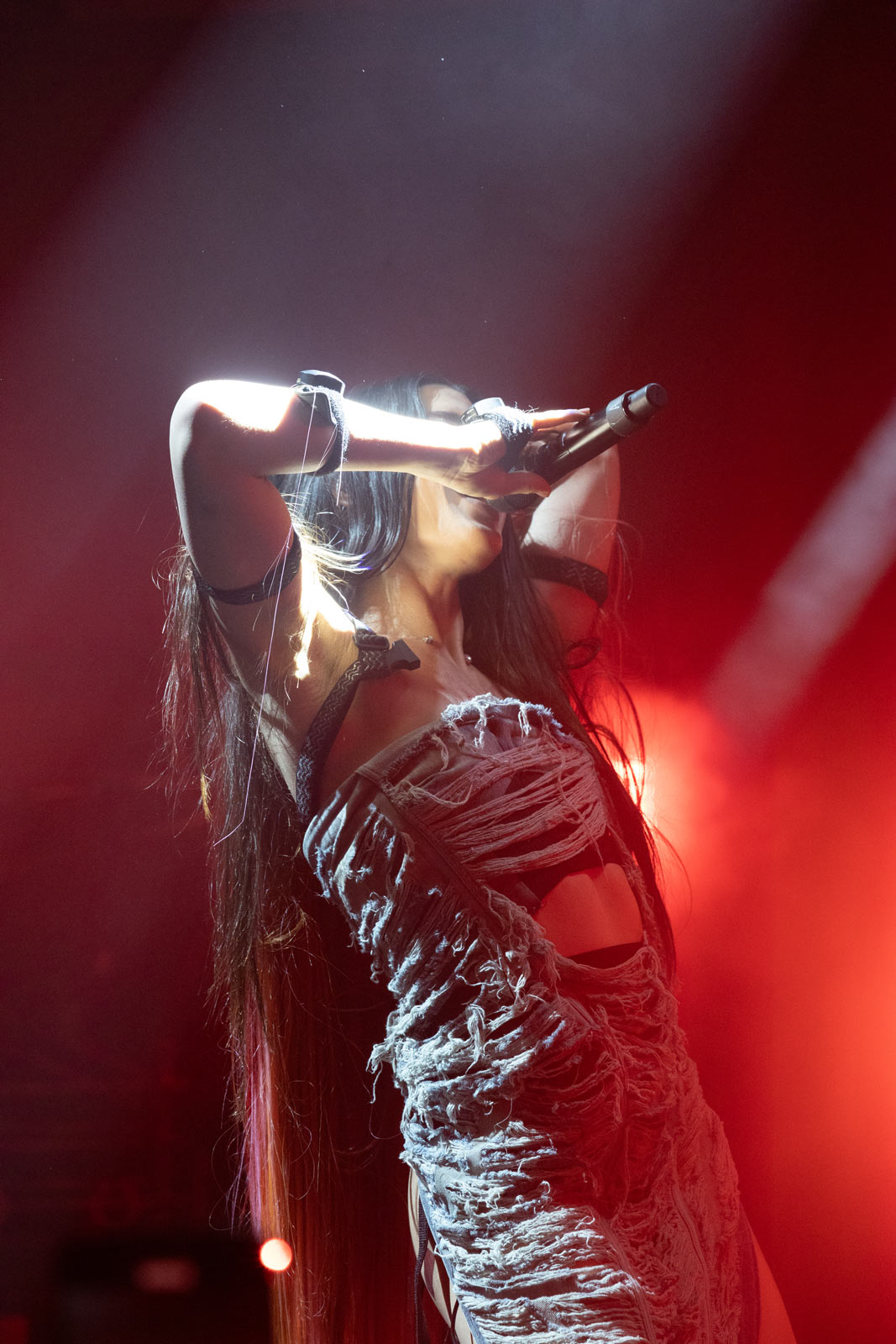Billed as her most personal performance yet, ‘Mutant;Destrudo’ is a testament to transformation
Arca is an artist known for blurring boundaries between performer and audience, so when I arrive at her takeover of New York’s historic Park Avenue Armory, I’m not sure what to expect. Will she be rolling around in a 30-foot deep dirt pit or gyrating on a synthesizer-stripper pole, as she did at Arca: Mutant;Faith? Will she be splattering people with fake blood like she did at the Red Bull Music Festival, or strutting down a catwalk as she did at Brooklyn Steel in 2017?
The Venezuelan musician takes a subtler approach in Destrudo. The show’s opening was elegant, even understated: Arca appeared suddenly, a distant idol serenading the audience from a spotlit balcony, only to disappear into the crowd and reemerge in a stuttering video sequence that shows her body shapeshifting into cybernetic forms. This restless, fractured imagery sets the tone for the rest of the show, which sees Alejandra Ghersi traverse her 10 years of sonic evolution as Arca—from spiky electronic textures to sensuous experimental soundscapes and reggaeton-inspired grooves.
Billed as Arca’s most personal performance yet, Destrudo spans the emotional spectrum, from intimate interludes performed on Arca’s tricked-out electroacoustic piano to cyborgian action sequences and anthems of self-expression like “Mequetrefe”—a song meant to remind listeners that while people might stare or gawk at those who are different, “you can’t be liked by everyone,” as the singer told Document in 2020.
“The show is rough and sweaty, but it’s also messy, lyrical, unexpected, tender, deeply touching, and human… a bit like life.”
It’s a notion Ghersi has grappled with both as a nonbinary trans woman, and a musician whose work defies the boundaries of genre—often blurring the line between nature and technology, male and female, man and machine. But unlike the experimental performances of years past, Destrudo sees Arca trade shock value for sincerity—cultivating, instead, a sense of intimacy with her fans. Throughout the evening, Arca alternates between pop diva and everyday person: cracking jokes, conversing with the audience, and conducting costume changes in full view—a gesture, perhaps, for the many transformations she has undergone over the years.
This time, there is no mechanical bull, and no horse-hoof heels—yet even with this more traditional format, Arca’s oeuvre renders the show transgressive in its own right: “I mean, those sounds would kill a medieval peasant,” as my friend said, while Arca gleefully went to town on her synthesizer, producing the kind of harsh, explosive noise that defined her earlier work. It’s this experimental musical sensibility—coupled with a subversion of norms and genres—that has earned Arca such a loyal and dedicated fanbase of self-identified “mutants.”
I meet one of them after the show, a man named Piero who has attended Destrudo two nights in a row. “With her fans, there is a sense of all and belonging… an exchange of aura, of this being a safe space where they feel they all belong,” he says. “There is a gravity to the work, but there is also humor. It moves fast; you never quite grasp it, you never get to just enjoy, because it always moves. There is always the next thing. And it interrupts your experience abruptly, these changes. The show is rough and sweaty, but it’s also messy, lyrical, unexpected, tender, deeply touching, and human… a bit like life.”











